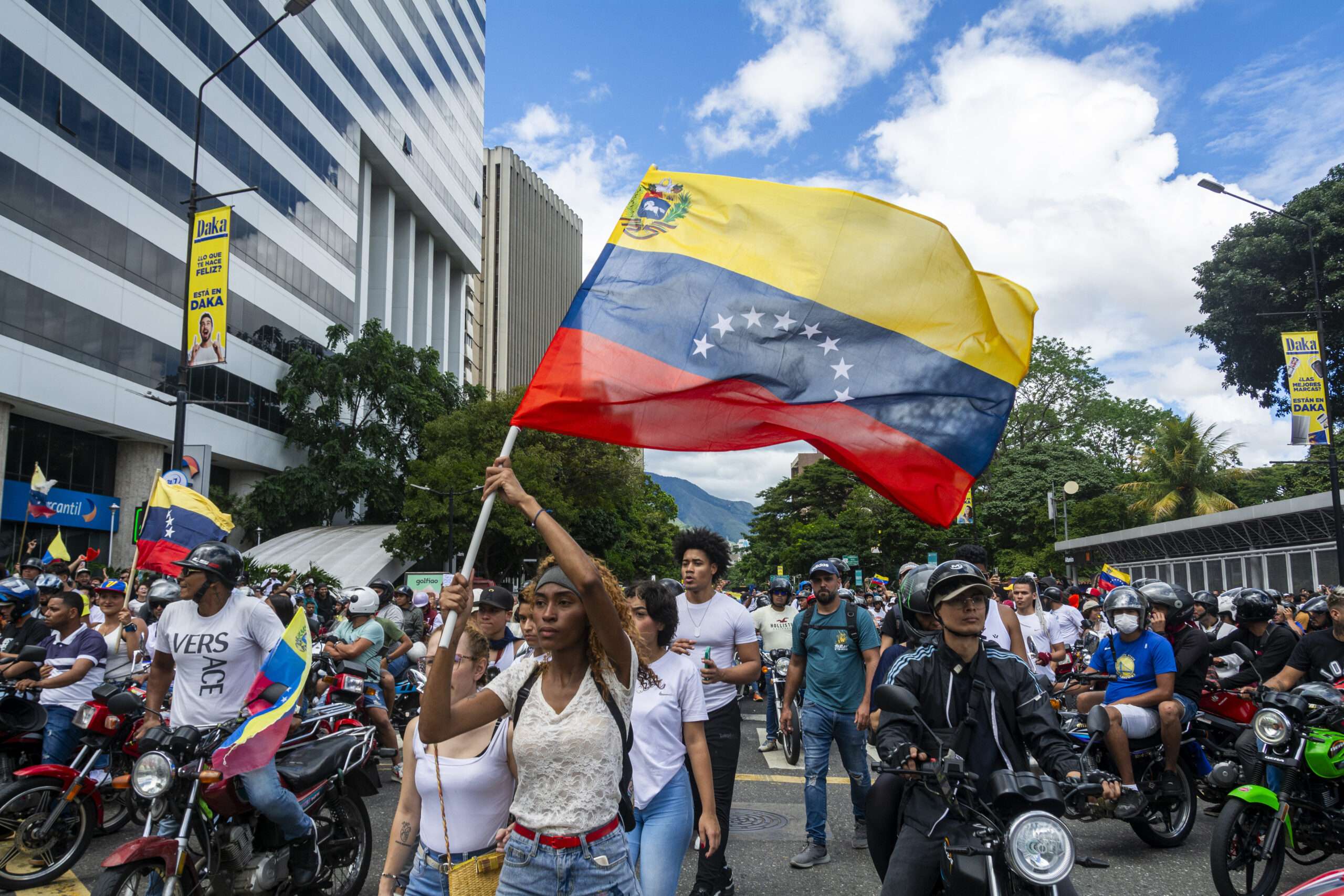
Nicolás Maduro is the authoritarian leader of Venezuela. Last weekend, he declared himself the winner of that country’s presidential election—an outcome that is highly disputed; the Carter Center lambasted the Maduro regime’s lack of transparency and said the process “cannot be considered democratic.”
Thousands of Venezuelans have taken to the streets in protest. In response, the government has implemented a crackdown, killing at least 16 people and detaining a thousand more. Such behavior is entirely characteristic of Maduro, an outlaw who has faced credible accusations of drug trafficking, public corruption, and crimes against humanity. His unscrupulous leadership has plunged the country into depression and poverty. As Reason‘s Katarina Hall wrote, “Almost 8 million Venezuelans have fled the country amid hyperinflation, shortages of essential goods, and rampant corruption. Many more have expressed their desire to leave if Maduro remains in power.”
Want more on free speech, social media, and why everyone in the media is wrong everywhere all the time? Sign up for Free Media from Reason and Robby Soave.
Maduro’s governing ideology is not a secret: He is a socialist. He is the successor to the leftist tyrant Hugo Chávez. He heads Venezuela’s ruling Socialist Party. His policy prescriptions are in line with socialism: His government has instituted price controls, seized assets from private companies, and contributed to the country’s hyperinflation problem. If it walks like a duck, quacks like a duck, and wrecks the economy with a mixture of centralized planning, repression, and pure theft—well, it’s a socialist duck.
So it came as something of a shock when a recent New York Times article that correctly described Venezuela’s overall problems—and Maduro’s perfidy in particular—nevertheless identified the government’s economic policy as “brutal capitalism” rather than socialism. Here was The Times:
If the election decision holds and Mr. Maduro remains in power, he will carry Chavismo, the country’s socialist-inspired movement, into its third decade in Venezuela. Founded by former President Hugo Chávez, Mr. Maduro’s mentor, the movement initially promised to lift millions out of poverty.
For a time it did. But in recent years, the socialist model has given way to brutal capitalism, economists say, with a small state-connected minority controlling much of the nation’s wealth.
Economists say what now? These economists are not identified by The Times; the given hyperlink redirects to a Times article about improvements in the Venezuelan economy. These improvements were due to the introduction of some market reforms, according to economists with actual names.
“Lifting some controls does not make Venezuela a capitalist country,” writes George Mason University economist Tyler Cowen. “Moreover, the lifting of controls led to improvements.”
When a small state-connected minority controls much of the nation’s wealth—and maintains its grip on power by outlawing dissent and cheating in elections—then the ruling ideology is socialism, almost by definition. Maduro, it bears repeating, makes no secret of this: He is the leader of the United Socialist Party of Venezuela.
Socialists will complain, as they often do, that various socialist governments are not practicing actual socialism. Under their idealized system, socialists claim, the government’s centralized redistribution of resources will be fair, equal, and democratic. Yet it certainly says something about such a system that it collapses into outright tyranny every time it is attempted. Socialist governance seems to require concentrating an extraordinary amount of power in elite government decision makers; this tends to produce a new ruling class, the widespread deprivation of political rights for everyone else, and crippling poverty.
Socialism is brutal, as the people of Venezuela know perfectly well. They understand that better than The New York Times.
Amber Duke and I discuss MSNBC’s confusion over what Sen. J.D. Vance (R–Ohio) really wants, President Joe Biden’s plan to pack the Supreme Court, and weird affinity groups supporting Vice President Kamala Harris. (Apologies for my hoarse voice; I had too much fun at a Green Day/The Smashing Pumpkins concert the night before we filmed.)
Like most fans of the Marvel Cinematic Universe (MCU), I am of the opinion that things have mostly gone awry since Avengers: Endgame concluded “The Infinity Saga.” (Though I enjoyed several of the post-Endgame television shows on Disney+: WandaVision, Loki, Hawkeye, and What If…?) I was thus incredibly pleased to learn that the Russo brothers—who were responsible for many of the MCU’s best films, including Endgame and Infinity War—are returning to rescue the franchise. Most notably, they have enlisted a familiar face: Robert Downey Jr., who famously portrayed Tony Stark/Iron Man, the original MCU superhero who gave his life to save the universe.
Downey Jr. will not be playing Stark again, thank goodness. While there are all sorts of ways to revive the character—alternate universes, time travel, etc.—doing so would cheapen his sacrifice at the conclusion of Endgame. Instead, Downey Jr. will play Victor von Doom, a beloved villain from the Marvel comics. It seems likely that this version of Doctor Doom will have some connection to Stark; as previously mentioned, the MCU has made use (some would say overuse) of alternate realities.
In any case, the recent reveal of Downey Jr. at Comic-Con in San Diego, California, was something to behold.


